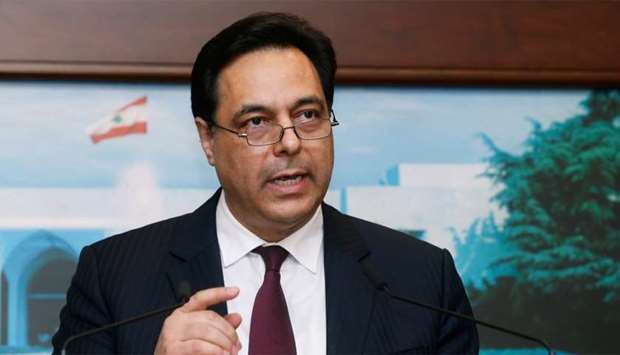Lebanon ended a painful wait yesterday by unveiling a new cabinet line-up, but the government was promptly scorned by protesters and faces the Herculean task of saving a collapsing economy.
More than a month after he was designated with backing from the powerful Shia movement Hezbollah and nearly three after his predecessor Saad Hariri resigned under pressure from the street, Prime Minister Hassan Diab's cabinet of 20 ministers was announced.
The academic and former education minister, who was little-known in Lebanon until last month, insisted in his first comments as premier that his cabinet was a technocratic one that would strive to meet protesters' demands.
"This is a government that represents the aspirations of the demonstrators who have been mobilised nationwide for more than three months," he said.
He said his government "will strive to meet their demands for an independent judiciary, for the recovery of embezzled funds, for the fight against illegal gains."
The new cabinet is made up of little-known figures, many of them academics and former advisers, but protesters were quick to argue that the absence of the biggest names in Lebanon's widely reviled hereditary political elite was but a smokescreen.
Groups of demonstrators had gathered in the streets of Beirut before the cabinet was even unveiled, blocking off a main street in the centre of the capital where violent scuffles with the police left dozens wounded over the weekend.
"We want a new Lebanon, a Lebanon with no corruption," Charbel Kahi, a 37-year-old farmer, told AFP as fellow protesters beat drums behind him.
"They are not taking the Lebanese people seriously with this government," he said.
Hilal Khashan, a professor at the American University of Beirut, argued that the idea of a genuinely technocratic government in Lebanon was "wishful thinking".
"Behind every candidate, there is a political party backing their nomination," he said.
Paula Yacoubian, a former journalist and independent MP, scorned the new line-up as "patches on old clothes".
She posted a picture of a beat-up car with flaking paint the caption: "There's a disagreement over who will be driving (and) who will have a seat by the window."
"Hassan Diab did not keep his promise of forming a government of independent" experts, she said.
Diab, a 61-year-old engineering professor at the American University of Beirut and self-professed technocrat, had been stuck between a political rock and an economic hard place.
Every day that passed without a cabinet had fuelled the anger of protesters and tested the patience of foreign donors warning that the quasi-bankrupt state could ill afford further delays.

